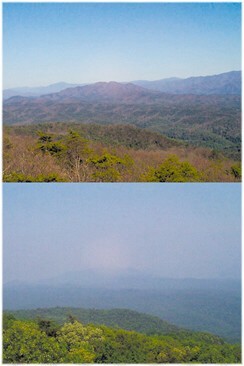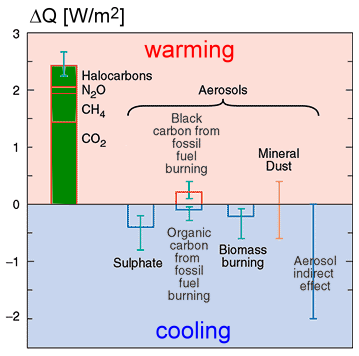 > ACCENT en > Special: July 05 Greenhouse Earth > C: the role of particles
> ACCENT en > Special: July 05 Greenhouse Earth > C: the role of particles
|
Particles: Impact on health and climate |
The light and energy of the sun have to pass a lot of barriers on their way through the atmosphere. It is not only the water droplets of the clouds, which blur sometimes the sun. Fine particles also(either liquid or solid) belong to these barriers in the air. We call them aerosols.
|
|
|
Diseases caused by particles have been the day-to-day fate of many industrial workers although today conditions are better than in the past. However, very fine particles are still regarded as a big danger for health, causing the current debate about ‘fine dust’. The problem of sulphuric acid particles and acid rain is basically solved in Europe now by filtering, but it is still a challenge in many developing countries. We could say: in order to prevent damage from our environment and our own health we strive to reduce the human made particle burden in the air as much as possible. |
|
Particles also play a role in the energy budget of the Earth. Some of them, such as black soot, absorb light very well and warm the atmosphere. Others, like sulphuric acid particles, reflect the sunlight and cool the Earth's surface. We assume that the total impact of all particle effects adds up to a significant cooling of the climate system which counteracts the greenhouse effect.
|


